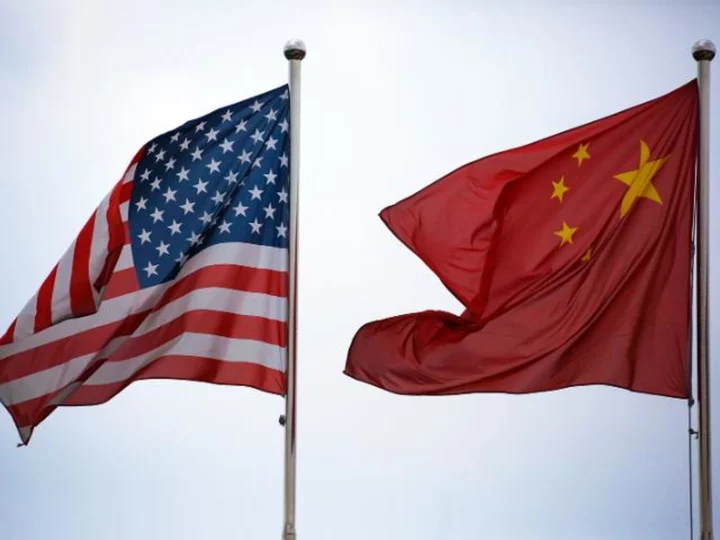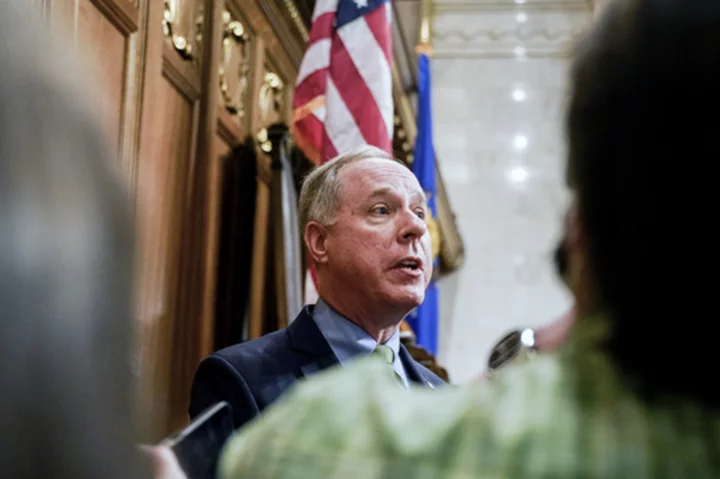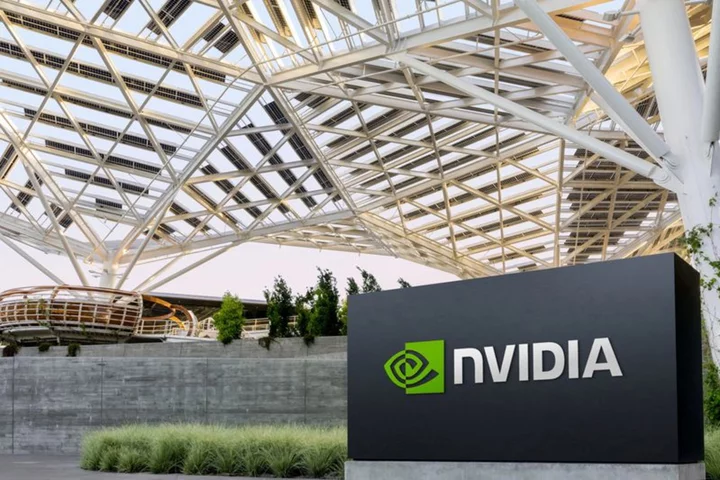New constraints on US investments in advanced technology in China will exacerbate a slump in deals between the world's top two economies and deliver a "major blow" to Chinese startups, analysts and investors told CNN Thursday.
The Biden administration announced Wednesday it would restrict investments by US venture capital and private equity firms, as well as joint ventures, in Chinese artificial intelligence, quantum computing and semiconductors.
The proposed rules are subject to a 45-day public comment period. Then they'll be turned into draft regulations which are expected to take effect next year. The executive order applies to investments in the cities of Hong Kong and Macao, as well as mainland China.
Though the new measures are still taking shape, DCM, a Silicon Valley venture capital firm that manages investments worth more than $4 billion, said the order would change the "manner and structure" of its investments in one area: artificial intelligence.
"We are actively consulting with our legal advisers," the company told CNN, noting that it does not currently invest in the other sectors affected: chips or quantum computing.
While the firm also thinks its prospective investments in AI may not fall within those prohibited, it "will continue to exercise the required due care to adhere and comply with the executive order," it added.
DCM is one of the most active US investors in Chinese startups, known for backing big names in consumer tech such as musical.ly, the short-video platform that later became TikTok.
The new US restrictions may endanger cross-border deals in future.
"This is a major blow not only for the Chinese startup ecosystem [but] also to the venture capital industry," said Edith Yeung, general partner at Race Capital, a Silicon Valley firm that invests in early-stage businesses.
She said the new edict suggested that Washington was "trying to 'decouple'" US and Chinese venture capital, despite the administration's insistence that it is not trying to halt trade with China.
"This has simply gone too far," added Yeung, whose firm mainly invests in AI, data and enterprise software in both the United States and China. "Washington should not limit our freedom of investing."
Officials announcing the restrictions Wednesday repeatedly emphasized their goal was to prevent US capital from aiding China's military — not to hurt China's economy.
"This is a national security action, not an economic one. We recognize the important role that cross-border investment flows play in US economic vitality," one official said on a call with reporters..
One key objective of the new measures is to limit China's access to the "intangibles," like technical know-how or relationships with experts, that often accompany investment from venture capitalists or private equity firms, a senior US official said Wednesday.
Some investors say damage to Chinese businesses is inevitable, with a possible blowback for US markets.
Loss of access to expert networks and knowledge would "make it more difficult for Chinese startups to innovate and compete on a global scale," said Yeung.
The executive order would have "a chilling effect" on startup founders in China, and could prompt some businesses to go public in mainland China, rather than on Wall Street, she added.
"This is only going to hurt the US capital market long term," she said.
A deep slump
US investment in China was already drying up.
"Tensions between the countries had already pressured US [venture capital] investment into China, and overall activity had been waning for several quarters," according to Kyle Stanford and Kaidi Gao, analysts at PitchBook.
US venture capital investment into China has plummeted about 80% over the past year, according to PitchBook data.
In the second quarter, Chinese deals involving a US venture capital investor totaled about $200 million, compared with $2.4 billion the previous year and $3.8 billion in 2019, before the pandemic hit. The recent global economic slowdown has also led many firms to tighten their belts.
The slump is even more pronounced in chipmaking, which has increasingly become a hot-button issue.
Just three Chinese deals involving a US venture capital investor were logged in this sector in the second quarter, compared to 10 the same time the previous year, according to PitchBook. The amount raised plunged to less than $100 million from $853.6 million.
Investors may have been spooked by rising political tensions and trade curbs. And the investment restrictions were long in the works.
Biden's order Wednesday "came with little surprise," particularly after US lawmakers called attention to what they saw as venture capital funding of a "China threat," noted Stanford and Gao.
The executive order "will be another hurdle in US-China private market investment," they told CNN.
Investors are now most concerned about the limits on AI. Since this technology is far-reaching, some fear it could be broadly defined.
Almost "everything could be AI these days," quipped Yeung.
For US investors, the increased oversight by Washington — and by Beijing, which has also looked to curb investment into some sectors from foreign entities on data security grounds — it's all just another headache.
The gloomy backdrop has already forced some businesses to rethink how they are structured. In June, Sequoia Capital announced it would split up, including a breakup of its US and Chinese businesses.
Leaders of the firm said at the time that it had "become increasingly complex to run a decentralized global investment business."
China alleges 'bullying'
China has hit back at the United States, vowing to safeguard its interests.
On Thursday, a spokesperson for the Chinese Ministry of Commerce said Beijing was seriously concerned about Biden's new order and reserved the right to take measures of its own.
China's Ministry of Foreign Affairs called Washington's move "a blatant act of economic coercion and scientific and technological bullying."
The issue could further strain relations.
Last October, Biden said Chinese leader Xi Jinping had personally expressed concerns to him about US plans to boost domestic chip production. The administration's latest restrictions will almost certainly be raised during US Commerce Secretary Gina Raimondo's planned visit to China this year.









